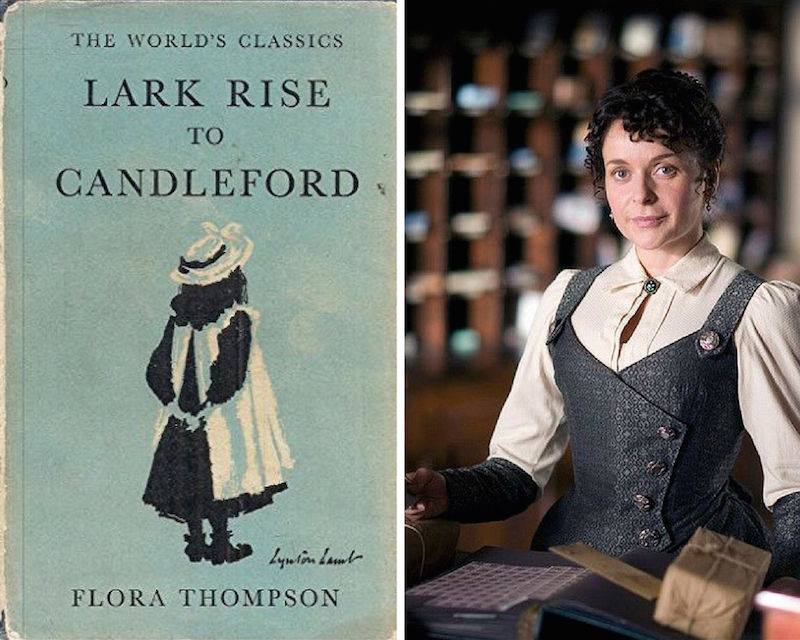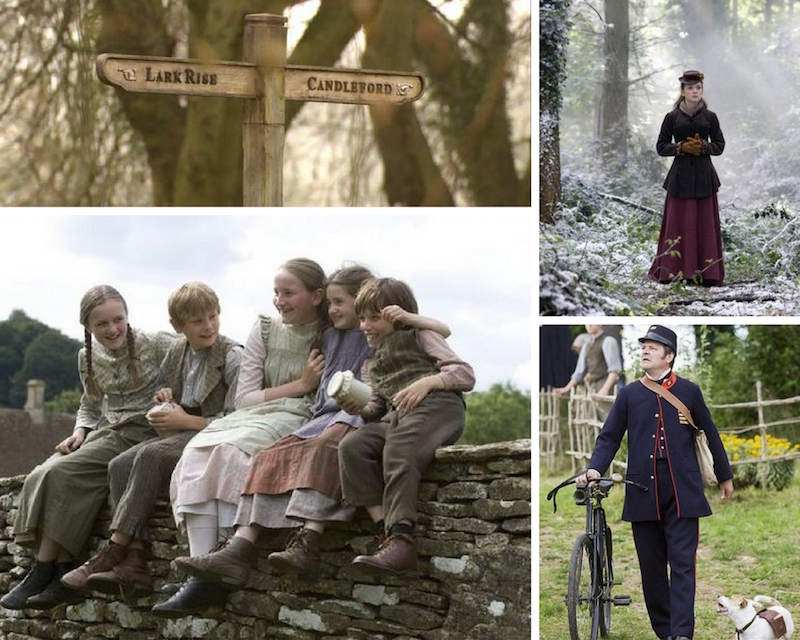My one weakness



Recently, I had a conversation on this blog with a lovely reader called Jan. I'm paraphrasing, but the conversation went something like this:
Jan: Have you heard of the TV show "Lark Rise to Candleford?" It's a period drama set in a post office.
Me: *Instantly leaves office and runs to find it*
Now I'm up to Season 2, and utterly in love with this little show. It is gentle, thoughtful, innocent, warm-hearted, and makes me feel nostalgic for a kind of life I've never known.
In case you haven't heard of it, Lark Rise to Candleford (which is based on a semi-autobiographical trilogy of books of the same name by Flora Thompson) centres around two small rural communities at the turn of the 19th century: the tiny hamlet of Lark Rise, and the wealthier and bigger (but still tiny by our standards) town of Candleford, both in Oxfordshire in the UK.
When in Candleford, most of the action centres around the comings and goings of the Candleford Post Office, which is run, rather controversially, by a woman. The Post Mistress, Dorcas Lane, is truly delightful: wise, loving, independent, glamorous, and ahead of her era in so many ways. She claims to have "one weakness," although depending on the circumstance, that one weakness could be anything from cake to feather pillows to buttermilk baths.
When Laura, Dorcas' young niece from Lark Rise, comes to work at the Candleford Post Office, Dorcas takes her under her lovely, protective wing and teaches her the way of the world... and of the post. I have been learning right along with Laura as I watch, and here is what I've gleaned so far:
* A century ago, the post was the only real way that people could communicate with others at a distance. It was possibly the most essential community-service of the time
* The post office itself was a community hub. All but the most hardened recluse had need of the postal services at some time or another so, in small communities, it became a natural meeting place for neighbours to gather and chat and swap stories and gossip. To "pass the time of day," as Candleford or Lark Rise folks would call it
* Postal workers were the keepers of secrets. They knew who wrote to whom, and how often. They could see the looks on faces - the shakes of hands - when letters of import were posted or received. They knew the contents of every telegram even before the recipients did
* The postie knew everyone in the community. Letters were delivered not into boxes but into hands, and the route to every home was an opportunity to observe and greet and forge connections
* And this, a quote from Season 4 (which I haven't actually seen so no spoilers please!), which sums up rather beautifully the power of a pen-and-ink letter:
"When words are written down, they can be the finest expression of the human soul... Once words are marked down on paper, they can not be taken back. They are in the world for good or for ill. They wither or they endure. Words can be dangerous things."